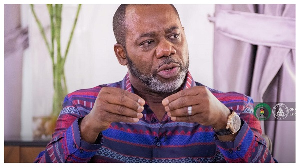Lead lawyers representing Venezuelan businessman and diplomat, Alex Saab have written to Cape Verde's state prosecutor, reminding him of the country's obligations to the ECOWAS community and urging him to ensure full compliance to the ECOWAS court's ruling on the detention of Mr. Saab.
The letter comes after wide media publications quoted the office of the prosecutor as suggesting that they will not comply with the ECOWAS court's ruling and that their position remains that Mr. Saab should be extradited to the US to face charges of corruption there.
The office of the prosecutor in a press enquiry replied that “the position of the Prosecutor General’s Office has not changed in relation to the extradition process of Mr. Alex Saab or regarding the acceptance of jurisdiction or the supremacy of the jurisprudence of the ECOWAS Court of Justice over the domestic legal order.”
According to lawyers Femi Falana and Dr. José Manuel Pinto Monteiro, this view by the Cape Verde authority is a cause for concern.
The ECOWAS court last Monday [March 15, 2021] ruled that Cape Verde releases Alex Saab who has been detained in the country for about nine months.
It added that Cape Verde must cease any extradition process against him and also compensate him with $200,000 for wrongfully and arbitrarily arresting him.
In an interesting turn of events barely 24 hours after that ruling, the Supreme Court in Cape Verde also ruled that Mr. Saab should be extradited.
Alex Saab's lawyers have stated that they will appeal the decision but in their letter to Dr. Luís José Tavares Landim, Cape Verde's Prosecutor General, they challenged his position that the ECOWAS court did not have jurisdiction on the matter and that the court's decision was not binding on them.
On the first claim of the ECOWAS court supposedly lacking jurisdiction because Cape Verde had not signed the Supplementary Protocol of ECOWAS court in January 2005, the lawyers argued that Cape Verde actively participated in deliberations on the ratification Protocol and that the only reason why it is the only country not to have signed it is because its Prime Minister had to leave to attend to an emergency in the country.
"We must also state that, despite machinations to the contrary, Cabo Verde is bound to the Additional Protocol A/SP1/01/05 amending Protocol A/P1/7/91 in regard to the Court of Justice of the Community (“the Protocol”). Under the provisions of Paragraph 2 of Article 11 of the Protocol, the Protocol becomes binding on all of the Member States of the ECOWAS, if 9 Member States sign it. In the present case, 14 out of 15 Member States signed the Protocol with the only one not signing was the Republic of Cabo Verde, and that only because its Prime Minister at the time had to return home to deal with an emergency."
"Neither at the time, nor the next day nor at any time in the eleven years since the Protocol was signed has Cabo Verde ever raised any concern about the binding nature of Protocol upon it. Indeed, Cabo Verde actively participated in the discussions leading up to the drafting and ratification of the Protocol," the lawyers added.
The lawyers further stressed that Cape Verde cannot claim the court lacks jurisdiction when it was duly represented by Dr. Henrique Borges fully participated in the entire legal process, filed submissions and was heard by the court.
"Cabo Verde recognised the jurisdiction of the Court by fully participating in the process by the presence and conduct of its legal representative, Dr. Henrique Borges... Cabo Verde voluntarily exercised its right to participate in the process, filed submissions and was heard by the Court... It is important to reiterate that the objections of Cabo Verde were heard and rejected by the Court. This approach is an element of the customary international law called “forum prorogatum” and is enshrined, for instance, in Article 36 of the Statute of the International Court of Justice," the lawyers said.
They added that with some of Cape Verde's renowned judges serving at the court including Honorable Justice Januária Tavares Silva Moreira Costa who coincidently was one of the 3 member panel of the Court which deliberated and ruled on the Alex Saab case, Cape Verde cannot claim that it has no relationship with the court.
"Apart from participating in the proceedings of the Court in the case of Mr. Alex Saab the Republic of Cabo Verde has continued to derive maximum benefit from the existence of the Court. To that extent, the Republic of Cabo Verde is bound to comply with the judgment and orders of the Ecowas Court contrary to the highly misleading views credited to you."
They further reiterated the point that Mr. Saab is a diplomat and was entitled to immunity from arrest.
"In view of the foregoing, we hope that that the media reports referenced earlier are incorrect and that you, your office and Cabo Verde accept the ruling of the Court and will respect the full protection due to Mr. Saab as a result of his immunity and inviolability," they concluded.
Africa News of Saturday, 20 March 2021
Source: www.ghanaweb.com

















